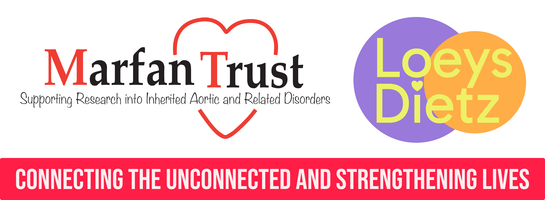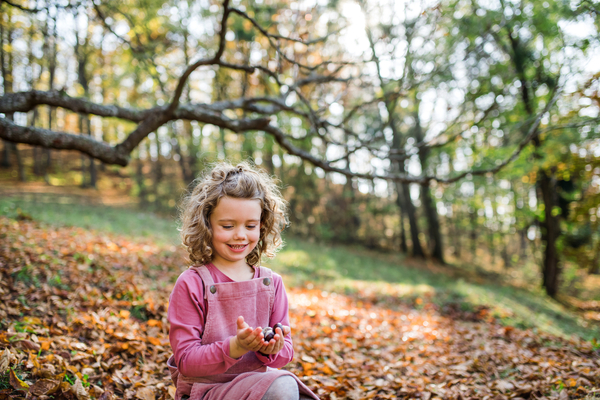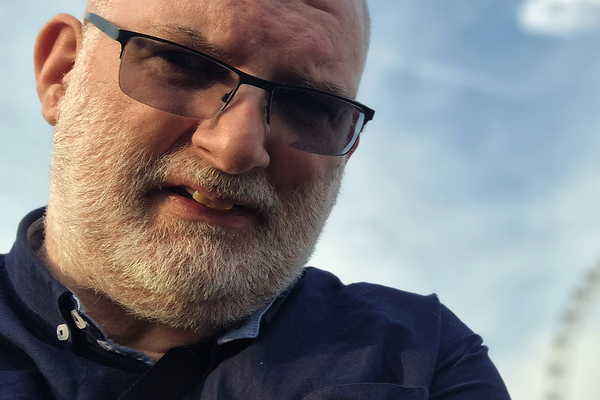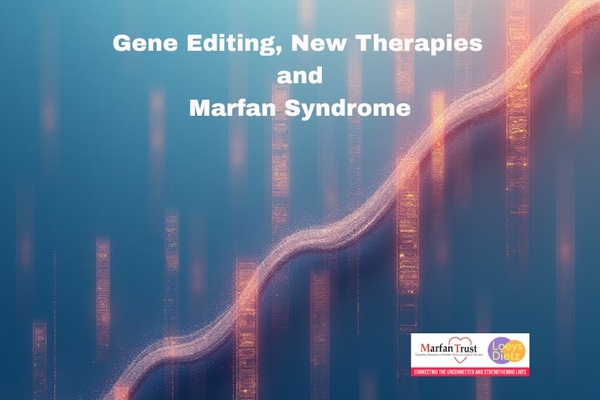Some first hear the words “Marfan syndrome” across the doctor's consulting table; others have grown up knowing them. A few are introduced to the term after emerging from life-saving surgery. Read Julie's Story.
by Julie
Can you remember where you were when you first heard of ‘Marfan Syndrome’? For some of us, we may have grown up hearing it, maybe even knowing we have it. I had never heard of it, until my world was turned completely upside down.
In July 2010, I returned from a shopping trip, slumping on the sofa, feeling exhausted. My tiredness was no surprise, I was in my 39th week of pregnancy and I had been out panic buying baby vests. Just me, worrying, in my final trimester, that the 50 tiny little vests already washed, and ironed in the drawer, were not enough!
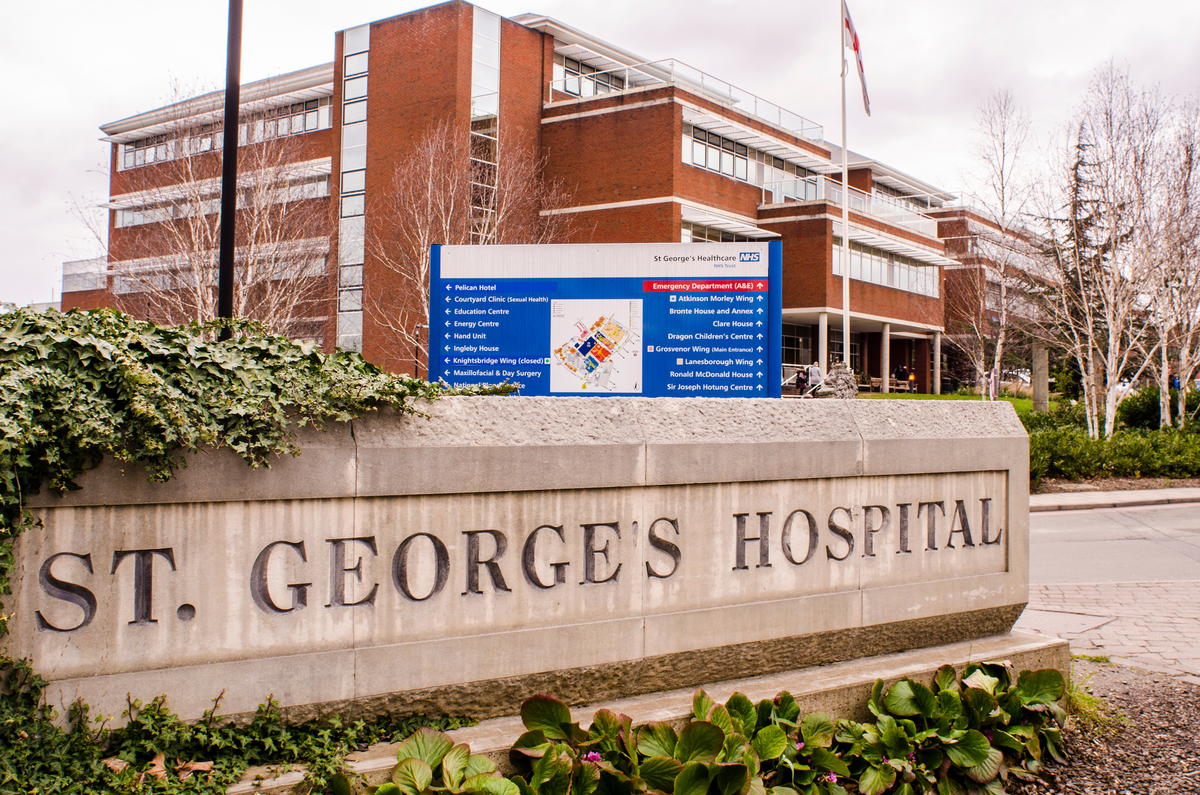
After mustering up the energy to put the kettle on, I knew something wasn’t right as I stood up. I felt light-headed with a heaviness in my chest that I hadn’t had before. Telling my partner I was going to lie down, I reached the bed and as soon my head hit the pillow, I felt the most intense pain in my chest. It was so strong that I sat bolt upright – not easy at 39 weeks pregnant! I knew I had to get to hospital.
My partner and I walked to the car but during the journey, my condition deteriorated. Just when I thought the pain in my chest couldn’t get any worse, it intensified. My back stiffened and stuck in an arched position. I couldn’t feel my legs. “Something’s not right”, I repeated, over and over. I was cold all over. The traffic near the hospital was gridlocked. We went to drive around it and a police car appeared. An officer got out to speak to my partner and on seeing something was wrong, he jumped in our car and drove it, following his colleague in the police car ahead, into the Accident & Emergency Department at St George's Hospital in Tooting.
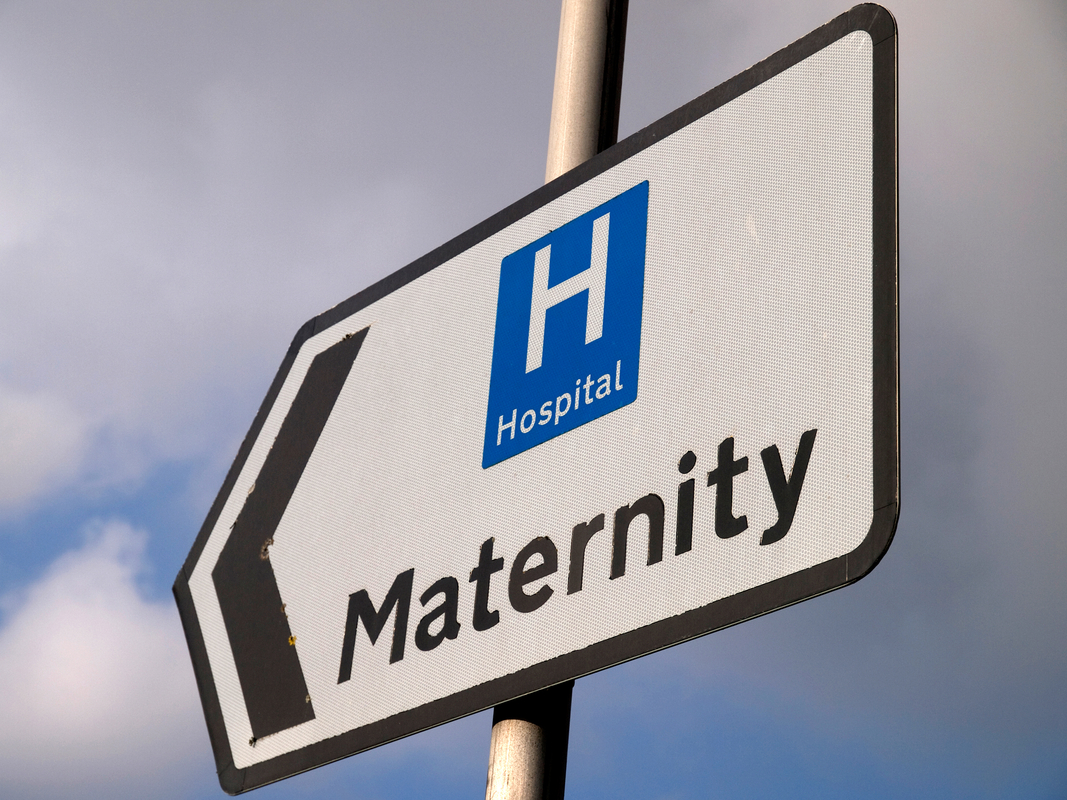
A porter arrived and opened my door, getting me onto a wheelchair as I still couldn’t feel my legs. I looked up and saw the ceiling lights whizzing past me one by one. That is the last thing I remember until I woke up in the Cardiothoracic Intensive Care Unit at St Georges Hospital several days later.
On arriving at the hospital, I had been taken to the maternity ward and treated as a ‘woman in labour’. I was monitored overnight but no one seemed to know what was wrong. A chest Xray was ordered, and I was given pain relief. The following morning, one of the nurses struggled to get a blood sample from me, and the Senior Midwife arrived on shift. I credit her with saving my life. She now says that she took one look at me and knew my problem was not baby related. She humbly puts her efforts down to a fresh pair of eyes arriving on shift. An alarm was sounded, and staff rushed to the unit to assist.
Initially, I was treated as septic. I was put to sleep and taken for an emergency c-section as the Doctors were worried that I was infecting my baby, or vice versa. When my condition deteriorated after the c-section, a chest scan was ordered. It was then, that the issue was highlighted. I had suffered a type A aortic dissection. I was prepared for theatre and underwent 9 hours of open-heart surgery to replace my aortic valve and aortic root. My family sat in the family room waiting for updates. They were told I was the sickest person in the hospital with one Doctor suggested they say their goodbyes, as there was not much hope. Thankfully, I had other ideas!
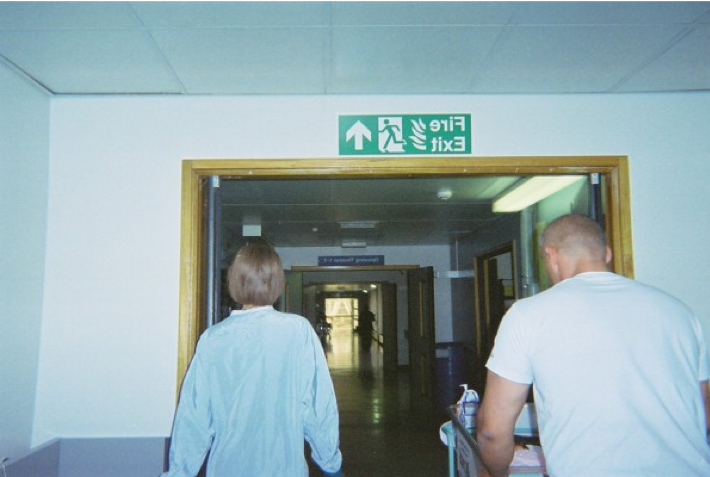
Waking up in intensive care with no idea what had happened to me, was the strangest feeling in the world. Lying there with a tube helping me breathe, unable to talk and vials of drugs at each side of my bed, I felt like a pair of eyes. My partner and my siblings stood at the foot of my bed, giving me thumbs up, telling me I was doing well. I didn’t know what I was doing well, but they seemed pleased enough!
My ICU Nurse showed me a photo of a beautiful baby girl, with knowing brown eyes, olive skin and lovely brown hair. My eyes darted around as memories of my pregnancy came back to me. My sister began telling me how my baby was in the Neonatal Unit being cared for by the staff. It all felt like so much to take in and I still didn’t understand why I was there. As the days went by, I recovered well and was moved on to a ward, however, a week after my heart surgery, I suffered an ischemic bowel and was rushed to theatre for an ileostomy. Thankfully it was reversed a year later.
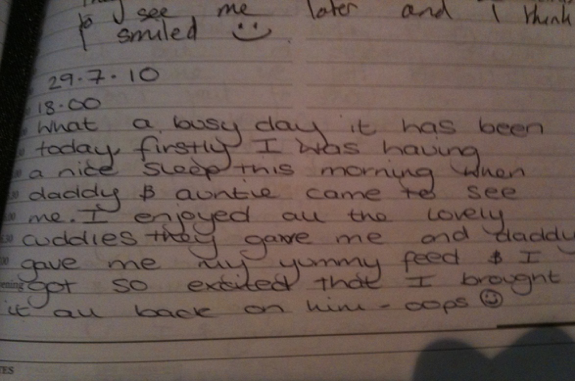
I spent three weeks in hospital and during that time I was visited by a member of the Cardiology Team. He discussed my progress and mentioned something that would feature in the rest of my life, Marfan Syndrome. No one in my family had ever heard of it, let alone been diagnosed. We had no one tall in our family and the only clue was that my brother had scoliosis when he was a teenager.
As time went on, the rest of my family were tested. We discovered that my dad, my brother, my new baby, and my brother’s two children, all carried the gene. I thought my own diagnosis was hard to take but hearing that I had passed the gene on to my baby, knocked me sideways. I felt so guilty every time I looked at her and I worried constantly about things she was doing, and things she may never get to do. Over time I became to realise that there is a huge benefit to her being diagnosed early on. She is already taking Losartan and this will help her immensely. Medicine moves at such a fast pace and the Marfan Trust do such great research work – who knows what they will discover in years to come!
My life with Marfan Syndrome is certainly different but just as fulfilled. I just take things a little easier. I am more aware of staying healthy and keeping calm when I feel something isn’t quite right. What I find helpful is being able to check certain things at home as if I feel a little unwell, I can usually put my own mind at rest. As someone who will be on Warfarin for life, I check my own INR at home. I can also check my blood pressure, heart rate, oxygen level, blood sugar and I have a 6 lead ECG device/app.
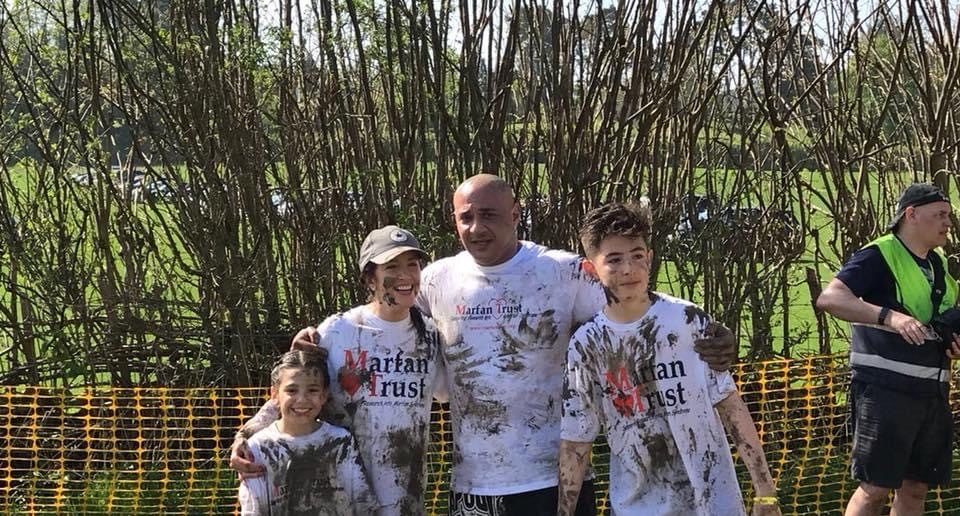
Whilst tough to hear, a diagnosis provided me with insight. I finally knew why I was always the slowest runner, why I tired easily, why my hands and wrists would ache after writing or peeling vegetables and why my joints were always clicking! It was easy, in the early days of my diagnosis, to blame Marfan Syndrome for everything, but I had to stop myself from doing that. It’s nice to know that whilst it is a rare syndrome, I am not alone. I often find myself looking at people and wondering if they have the gene. What do you do in that situation? Well, for me, if it feels right, I am more than happy to raise the subject with them. It could be lifesaving!
Julie and her Family completed a mad muddy run and raised over £2,000 for the Marfan Trust, thank you!
